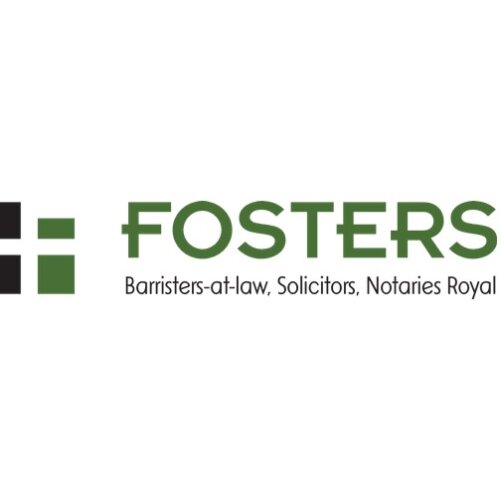Best Water Law Lawyers in Castries
Share your needs with us, get contacted by law firms.
Free. Takes 2 min.
List of the best lawyers in Castries, Saint Lucia
About Water Law in Castries, Saint Lucia
Water Law in Castries, Saint Lucia refers to the legal principles and regulations governing the use, management, conservation, and distribution of water resources within the city and the wider nation. As an island state with limited natural freshwater sources, the regulation of water is crucial to protect the interests of individuals, businesses, communities, and the environment. Water law in Saint Lucia encompasses issues related to water rights, allocation, quality standards, access, pollution control, ownership, and the responsibilities of various governmental agencies. While national legislation forms the primary basis for water law, local bylaws and policies in Castries can also affect how water resources are managed.
Why You May Need a Lawyer
People in Castries may need legal advice or representation in the field of Water Law for several reasons. Common situations include:
- Disputes over access to water or water rights between neighbors, businesses, or communities.
- Compliance issues with municipal or national water regulations, especially for developers or commercial entities.
- Penalties or enforcement actions due to alleged water pollution or unauthorized use.
- Negotiating or drafting contracts for water supply, land use, or sale that involve water rights.
- Challenges in obtaining permits or licenses from governmental authorities regarding water extraction or usage.
- Issues related to land development that impact water sources, drainage, or flood management.
- Protection from or responsibility for damage resulting from flooding or landslides linked to water management.
- Questions about public versus private water sources and entitlements for residential or agricultural needs.
Local Laws Overview
The key legal framework for Water Law in Castries, Saint Lucia, is shaped by the Water and Sewerage Act, which regulates the allocation and management of the country's water resources. This Act outlines the structure for licensing water extraction, monitoring water quality, pollution control, and the responsibilities of the Water and Sewerage Company Inc. (WASCO), which is the principal agency for public water supply.
Other relevant laws include environmental statutes, public health regulations, land use policies, and planning legislation. Together, these laws determine who can access water, how water extraction is licensed, water conservation obligations, guidelines on wastewater disposal, and penalties for noncompliance. Public health laws also set minimum standards for potable water, while environmental regulations aim to protect Saint Lucia’s watersheds and aquatic ecosystems.
For residents and businesses in Castries, understanding how these laws intersect with property rights, land development policies, and urban planning is essential whenever water issues arise.
Frequently Asked Questions
What is the primary law governing water use in Castries, Saint Lucia?
The main law is the Water and Sewerage Act, which oversees water allocation, supply, quality, conservation, and wastewater management throughout Saint Lucia, including Castries.
Who manages public water supply in Castries?
The Water and Sewerage Company Inc. (WASCO) is the governmental body responsible for water distribution, maintenance of water infrastructure, and compliance with water laws in Saint Lucia.
Can individuals or businesses drill wells or extract groundwater?
Drilling wells or extracting groundwater typically requires a permit or license from WASCO or the relevant governmental department. Unlicensed extraction can lead to penalties.
How are water rights determined for properties?
Water rights are governed by national law and may also depend on historical use, property boundaries, or access agreements. Legal advice is often needed to clarify entitlements.
What are the regulations on water pollution?
There are strict regulations prohibiting the pollution of water sources. Wastewater discharge, dumping of chemicals, or other contaminants are regulated, and violations can result in severe fines or legal action.
How does water law affect new construction or land development?
Developments must comply with laws relating to water drainage, run-off, connection to potable water, and wastewater disposal. Planning permissions usually require proof of compliance with water regulations.
What can I do if my neighbor’s water use is affecting my property?
If another party's water use is impacting your access or causing damage, you may have legal remedies. A lawyer can help assess your rights and facilitate negotiation or litigation if required.
Are there special protections for water conservation areas?
Yes, certain areas are designated as protected for water conservation purposes, especially forests and watersheds. Activities in these areas may be restricted to safeguard water quality and supply.
How do I resolve a dispute with WASCO or another agency?
Disputes with water authorities may require a formal complaint procedure, mediation, or court action. Legal representation ensures your interests are protected throughout the process.
What penalties exist for violating water use laws?
Penalties may include fines, restoration costs, or criminal charges, depending on the severity and nature of the violation. Early legal advice can help minimize potential consequences.
Additional Resources
If you are seeking information or assistance concerning Water Law in Castries, consider the following resources:
- Water and Sewerage Company Inc. (WASCO) - Main provider of water services and enforcement of water regulations.
- Ministry of Agriculture, Fisheries, Food Security and Rural Development - Oversees national water resources policy and conservation.
- Legal Aid Clinic (Saint Lucia) - Provides low-cost or pro bono legal advice in various matters, including environmental and property law.
- Department of Sustainable Development - Manages environmental protection initiatives, including water quality monitoring and conservation programs.
- National Emergency Management Organisation (NEMO) - Offers guidance on flood management, disaster preparedness, and resilience against water-related hazards.
Next Steps
If you believe you have a Water Law issue in Castries, Saint Lucia, start by documenting your problem clearly and gathering any relevant records, such as permits, correspondence, or photographs. Engage with the appropriate governmental agency listed above to clarify your situation or file a complaint. If the issue is complex or you are facing enforcement action, contact a local attorney with experience in water, environmental, or property law. Legal professionals can explain your rights, advise on the best course of action, and represent your interests in negotiations or before the courts. Acting promptly ensures your rights are upheld and that compliance or dispute resolution proceeds effectively.
Lawzana helps you find the best lawyers and law firms in Castries through a curated and pre-screened list of qualified legal professionals. Our platform offers rankings and detailed profiles of attorneys and law firms, allowing you to compare based on practice areas, including Water Law, experience, and client feedback.
Each profile includes a description of the firm's areas of practice, client reviews, team members and partners, year of establishment, spoken languages, office locations, contact information, social media presence, and any published articles or resources. Most firms on our platform speak English and are experienced in both local and international legal matters.
Get a quote from top-rated law firms in Castries, Saint Lucia — quickly, securely, and without unnecessary hassle.
Disclaimer:
The information provided on this page is for general informational purposes only and does not constitute legal advice. While we strive to ensure the accuracy and relevance of the content, legal information may change over time, and interpretations of the law can vary. You should always consult with a qualified legal professional for advice specific to your situation.
We disclaim all liability for actions taken or not taken based on the content of this page. If you believe any information is incorrect or outdated, please contact us, and we will review and update it where appropriate.










